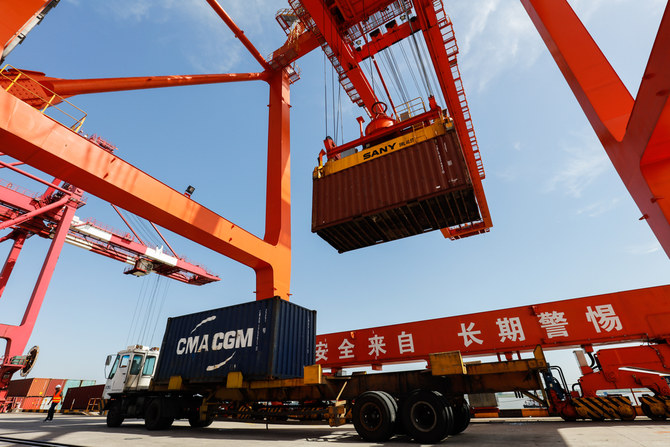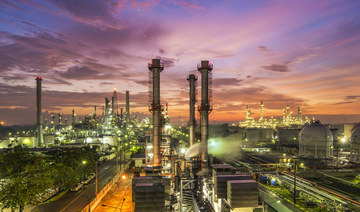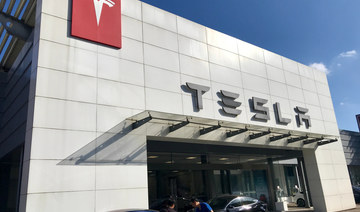BEIJING: China’s exports shrank much faster than expected in May while imports extended declines with a grim outlook for global demand, especially from developed markets, raising doubts about the fragile economic recovery.
The world’s second-largest economy grew faster than expected in the first quarter thanks to robust services consumption and a backlog of orders following years of COVID disruptions, but factory output has slowed as rising interest rates and inflation squeeze demand in the US and Europe.
Exports slumped 7.5 percent year-on-year in May, data from China’s Customs Bureau showed on Wednesday, much larger than the forecast 0.4 percent fall and the biggest decline since January. Imports contracted 4.5 percent, slower than an expected 8.0 percent decline and April’s 7.9 percent fall.
“The weak exports confirm that China needs to rely on domestic demand as the global economy slows,” said Zhiwei Zhang, chief economist at Pinpoint Asset Management. “There is more pressure for the government to boost domestic consumption in the rest of the year, as global demand will likely weaken further in the second half.”
Highlighting the extent of the weakness, the data shows trade was worse even than when the port of Shanghai, China’s busiest, was shut down due to strict COVID curbs a year earlier.
The figures also add to a growing list of indicators that suggest China’s post-COVID economic recovery is quickly losing steam, bolstering the case for more policy stimulus.
Demand Squeeze
Asian stocks fell into the red after the data as did the yuan and the Australian dollar, a commodity currency that is highly sensitive to swings in Chinese demand.
China’s post-pandemic stock rally has faded as small-time investors turn bearish on equities and double down instead on safer assets amid a stuttering economic recovery.
The economy has been hit by a double whammy of faltering demand at home and abroad with the ripple effects felt across the region.
South Korean data last week showed shipments to China slid 20.8 percent in May, marking a full year of monthly declines, with Korean semiconductor exports dropping 36.2 percent, suggesting weak demand for components for final manufacture. Chinese imports of semiconductors fell 15.3 percent, as the market for the consumer electronics exports that include such parts softened.
Demand for raw materials broadly weakened with coal imports pulling back from the 15-month high hit in March, amid soft appetite from the power and steel sectors. Copper imports slid 4.6 percent in May from a year ago.
China’s official purchasing managers’ index released last week showed factory activity shrank faster than expected in May.
The PMI’s subindexes also showed factory output swung to contraction from expansion while new orders, including new exports, fell for a second month.
While economic growth beat expectations in the first quarter, analysts are now downgrading their forecasts for the rest of the year, as factory output slows.
The government has set a modest gross domestic product growth target of around 5 percent for this year, after badly missing the 2022 goal.
“Looking forward, we think exports will fall further before bottoming out later this year,” said Julian Evans-Pritchard, head of China economics at Capital Economics.
“Although interest rates outside of China are near a peak, the lagged impact from the sharp rate hikes is set to weaken activity in developed economies later this year, triggering mild recessions in most cases.”














